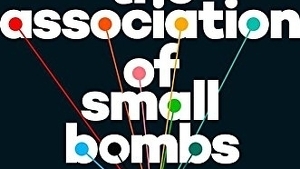
A few years ago, I had some time to kill in Huddersfield and decided to check for any interesting books in the Oxfam shop. I'd never seen a copy of Granta before nor hunted one down, presuming my intelligence was below its target readership and assumed my pretentiousness lay elsewhere. (Spoiler: despite ongoing questions regarding my intelligence, it didn't.) But here it was, an issue dedicated to the best young American writers.
It included a short story by Karan Mahajan called The Anthology. I'd previously read his second novel, The Association of Small Bombs, and the queasy, uncertain feelings it gave me were reason enough to make me a fan. The Anthology brought out a similarly uneasy reaction in me, as it's another dark story, one about the aftermath of a bombing and it begins in Delhi in 2000 at a literary event. It's a world away from video games, but Mahajan's focus on politics and world-building felt relevant to the spaces where games often find themselves these days. Mahajan's work reminds me of Donna Tartt's theory of "density and speed" as being central to her work, something she emphasised during the release of The Goldfinch. "You're building a big, heavy article but you want it to go fast. You want the readers' experience of it to be fast. And you want there to be detail in it."
The Anthology is beautifully written, layering in humorous satirical critiques not just of the literary world, but also Indian society. The unreliable narrator – who we only know as the son of a Rajesh Soni, and nicknamed "Fatso" – relays the story of this fatal event, where literary elites gathered to hear an esteemed Kiwi writer. Unfortunately, with everyone else killed, a fellow writer named Ismail Baig emerges as the sole survivor. Soni, after agreeing with his friends that they should create an anthology of short stories inspired by this event, stumbles into Baig to ask for his blessing and to provide a foreword. It's wonderful to see how Mahajan almost pulls back the curtain to reveal why he focuses on such a dark topic, only for it to act as a decoy, as explained through the narrator: "Bombs always make the most of the slightest material… Bombs see the possibility in everything, and in this way they are like artists, brilliant improvisers, except that they happen to kill, and so isn't there a strange poetry, you ask, in a bomb that kills artists? No."



